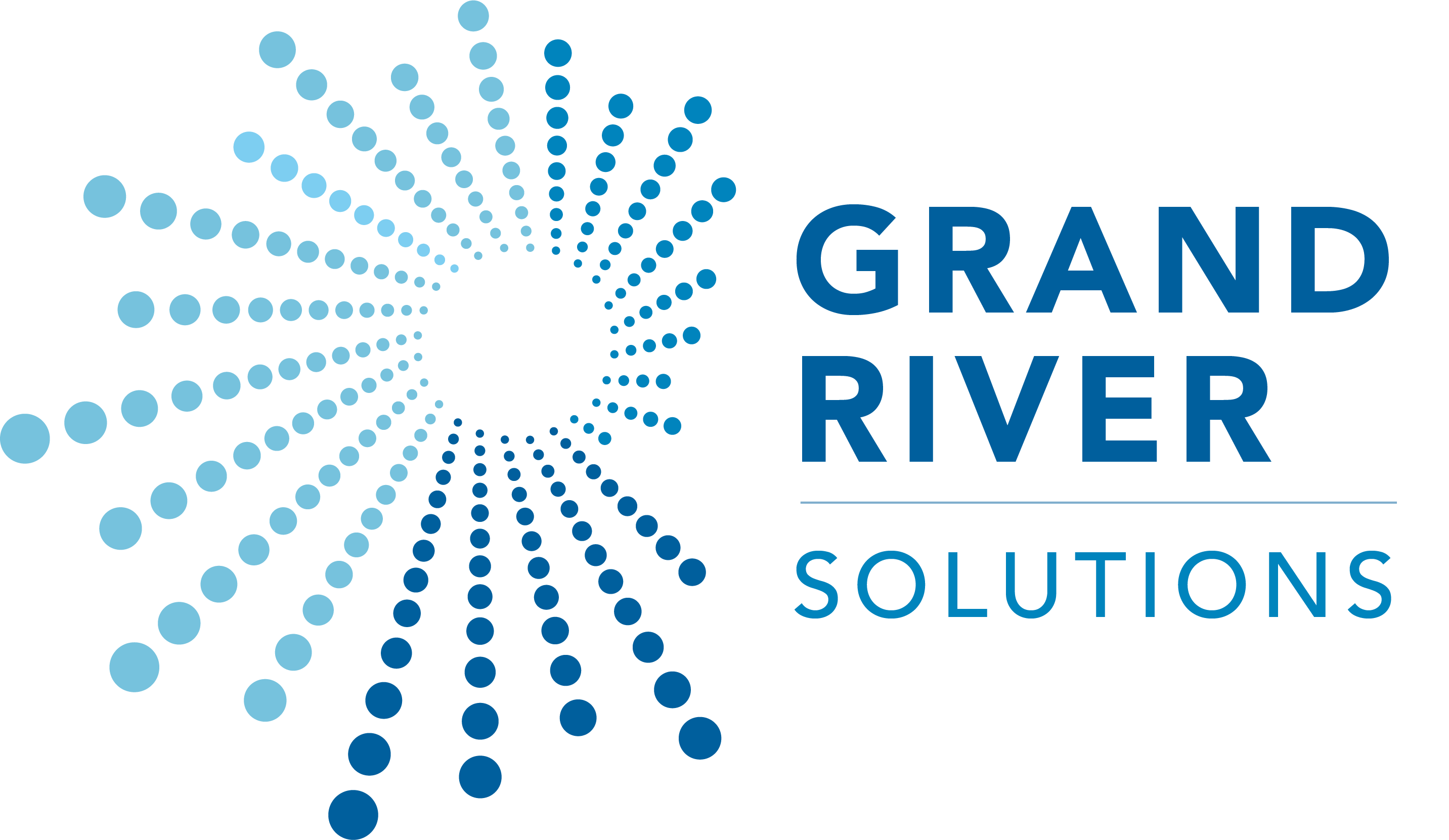
ADA & 504 Training
Accessibility
Grand River Solutions specializes in online or in-person ADA & 504 training that can be tailored to the needs of your campus. You can choose individual courses from the menu below, select a package of sessions, or contact us to customize trainings for your team. We have the expertise to meet the increased demand of supporting a compliant and accessible environment that goes beyond assessments and into effective accomodations and positive culture shifts.






Accessibility
Grand River Solutions specializes in online or in-person ADA & 504 Training that can be tailored to address the needs of your campus. You can choose individual courses from the menu below, select a package of sessions, or work with us to customize trainings specific to your community. Our team has the expertise to help you address the increased demand of supporting a compliant and accessible environment that goes beyond assessments and into effective accomodations and positive culture shifts.


ADA & 504 Trainings

ADA & 504 Trainings
Understanding Anxiety, Depression, and Associated Mental Health Disabilities
Your Subtitle Goes Here
Training Length: 2 hours
There has been an increase in students with mental health diagnoses entering higher education with comorbid disabilities that include mental health conditions and/or components. These conditions may be non-observable disabilities and can have a significant impact on student performance and classroom behavior. Understanding how such conditions are manifested in the classroom provides a basis for fostering strategic teaching methods to successfully work with and support what may have otherwise been viewed as a “disruptive” student.
Learning Objectives
- Understand basics of what are called Mood Disorders and how they translate into observed classroom performance or conduct;
- Understand basic ADA/504 and how these disorders are considered a disability;
- Understand and apply classroom strategies that foster success; and
- Understand and be able to address requests for accommodation and associated issues that may arise.
This session is for:
- Faculty
- Student Affairs Professionals
- ADA/Section 504 Coordinators
- Disability Services Professionals
- Advocacy and Support Services
ADHD and Neurodiverse Disorders
Your Subtitle Goes Here
Training Length: 2 hours
ADHD is not a one-size-fits-all disability.
Learning Objectives
- Understand the basics of ADHD as it is categorized within the diagnostic category of neurodiverse disorder;
- Understand the manner in which ADHD may be observed classroom and may impact performance or conduct;
- Understand basic ADA/504 and how these disorders are considered a disability;
- Understand and apply classroom strategies that foster success; and
- Understand and be able to address requests for accommodation and associated issues that may arise.
This session is for:
- Faculty
- Student Affairs Professionals
- ADA/Section 504 Coordinators
- Disability Services Professionals
- Advocacy and Support Services
Language and Learning Disabilities
Your Subtitle Goes Here
Training Length: 2 hours
In the course of the last four decades, the diagnosis of language and learning disabilities has become more common and more complex. Larger numbers of students entering post-secondary education do so with some type of mild to severe LD, leading to significant accommodation histories that may or may not have fostered academic success. No longer is LD considered a lack of intelligence; rather, LD is simply another neurodiverse disorder that impacts individuals in unique but predictable ways. Understanding that such disorders are not a one-size-fits-all disability fosters application of universal design and strategic teaching methods to successfully work with and support students and staff with LD.
Learning Objectives
- Understand basics of language and LD as it is categorized within the diagnostic category of neurodiverse disorder;
- Understand the manner in which such disorders like dyslexia and dyscalculia may be observed classroom and may impact performance or conduct;
- Understand basic ADA/504 and how these disorders are considered a disability;
- Understand and apply classroom strategies that foster success; and
- Understand and be able to address requests for accommodation and associated issues that may arise.
This session is for:
- Faculty
- Student Affairs Professionals
- ADA/Section 504 Coordinators
- Disability Services Professionals
- Advocacy and Support Services
Supportive Measures, Accommodations or Remedies: Where is the Line?
Your Subtitle Goes Here
Training Length: 2 hours
There are an increasing number of cases with complex accommodation requests and co-morbid factors. Students may have concerns that overlap and need immediate intervention under Title IX, ADA or 504.
A student in the Title IX process requests extra academic support. Is this a supportive measure? An accommodation? Might it be a remedy? Did you know that the label matters? There are significant differences in process, paperwork, and determining who has authority for making each of those determinations; it is important to understand the differences.
This training will provide attendees with a strategy to identify and address the elements of complex student cases involving supportive measures, accommodations, or remedies.
Learning Objectives
- Understand and be able to distinguish the unique features of supportive measures, accommodations and remedies, their limitations as well as their application within a post secondary environment;
- Understand assessment and application of correct intervention and/or several interventions;
- Understand best practices for documentation;
- Implement best practices for multiple office interface; and
- Understand foundational law, regulation, and applicable practices.
This session is for:
- Title IX Coordinators
- ADA/504 Coordinators
- Student Affairs Support Services
- Compliance Office
- HR Employee Relations Office
Digital Accessibility Series
Your Subtitle Goes Here
Digital Accessibility Series
Digital information is an essential access point in modern society, and higher education is no exception. This is why regulations require that digital resources including websites, documents, and mobile applications meet standards for accessibility. Join us in our comprehensive three-workshop series designed to make sure you understand the requirements of digital accessibility standards, have the skills to meet them, and the tools to be an informed purchaser of outside accessibility services. The trainings in this series can be taken individually, but will be most beneficial when taken together for a complete understanding of the digital accessibility landscape and best practices.
Series Part 1 —Digital Accessibility 101
This Digital Accessibility 101 training will cover foundational knowledge about legal requirements for digital accessibility, including those impacting public entities that both go into effect starting in the Spring of 2026.
In this session we will cover:
- Current requirements for digital accessibility under Section 504 and the Americans with Disabilities Act Title II and Title III
- Digital accessibility regulations for Americans with Disabilities Act Title II and HHS Section 504 that came out in spring of 2024 which go into effect in either spring of 2026 or 2027 depending on the size of the institution
Series Part 2—Document Accessibility for ADA/504
Often documents are posted on the web and used as key points of information. These include word processed documents, presentations, and converted PDF files. The accessibility of these documents is often overlooked. In this second session, we will practice key skills to make sure you are meeting accessibility standards with your documents, including Microsoft Office products and PDFs.
In this session we will cover:
- Creating a document in an accessible way from the start
- Word and Excel documents, including PDF conversion
Series Part 3—Assessing a Website for Digital Accessibility
This will be an session on how to evaluate the accessibility of a website. No technical skills are needed. We will assess a test website together and share practical skills for evaluating the accessibility of your own web pages.
In this session we will cover:
- Non-technical skills for testing a website- No prior experience or special software required, just a computer
- Concrete skills that can be applied to evaluate all types of websites used by departments and institutions
Custom Training
Your Subtitle Goes Here
We work with each campus to create a customized training solution specific to your needs. Contact us to begin the discussion.
Contact us to arrange for private trainings for your organization or join one of the open training sessions below.
Meet Our ADA & 504 Training Team

Crystal C. Coombes
Crystal C. Coombes is the 504 Practice Lead with more than 35 years of experience in private and public industry, higher education, and disability management. Crystal previously served as ADA/504 Coordinator and Title IX Coordinator in addition to her role as the Assistant Vice President of Equity and Access Services with the Office for Diversity, Equity and Inclusion at George Mason University. During her extensive career, she has developed, implemented and managed several inaugural programs and services including that of a multi-campus division of Student Affairs. Crystal has an extensive background in mental health and crisis assessment/management, equity and access services, disability and workers compensation, compliance and risk management, and investigation. She holds various professional certifications including licensure as a Licensed Professional Counselor in Virginia and as a national mediator.

Judith Risch
Judith Risch, J.D., Ph.D., is the Title IX & Equity Access Services Special Advisor at Grand River Solutions. Judy brings over two decades of invaluable experience from her tenure at the Office for Civil Rights (OCR) in the U.S. Department of Education. Judy’s role at Grand River Solutions involves partnering with senior leadership in business, healthcare, government, and educational systems in areas of disability discrimination related to equity, access, and technology, ensuring best practices and compliance with federal civil rights laws, including Title IX, Title VI, Title VII, the Americans with Disabilities Act, and Section 504 of the Rehabilitation Act of 1973. Judy Risch is nationally recognized as a foremost expert in digital accessibility, having served as a senior attorney at the Department of Education, where she co-led the Office for Civil Rights National Digital Accessibility Team.

Andrea Stagg
Andrea Stagg has extensive experience in higher education in-house legal settings at public and private colleges and universities. As Deputy General Counsel and Director of Government Relations & Compliance at Barnard College she oversaw all legal and compliance matters, including navigating the pandemic as chair of the College’s COVID-19 Vaccine Working Group. She has presented in-person and virtual training to thousands of higher education professionals, attorneys, and board members throughout career. Andrea has also published legal and compliance writing about sexual and interpersonal violence prevention and response, the Clery Act, NCAA compliance, and program integrity.

Myra Waddell
Myra Waddell is a Senior Solutions Specialist with over 30 years of experience in higher education. Myra served as the Director of Disability Services at Winston-Salem State University, and a Special Education Resource Teacher in Franklin County Schools, Virginia. She also served as an itinerant teacher to Greensboro City Schools and Winston-Salem Forsyth County Schools, in North Carolina. At Winston-Salem State University, Myra was responsible for providing accommodations to faculty, staff, and students in addition to, providing educational opportunities to the university and assisting with maintaining ADA Compliance. She facilitated trainings and led presentations for Faculty, Staff, Students, Academic Departments, and Residence Life.
Interested in learning more?

